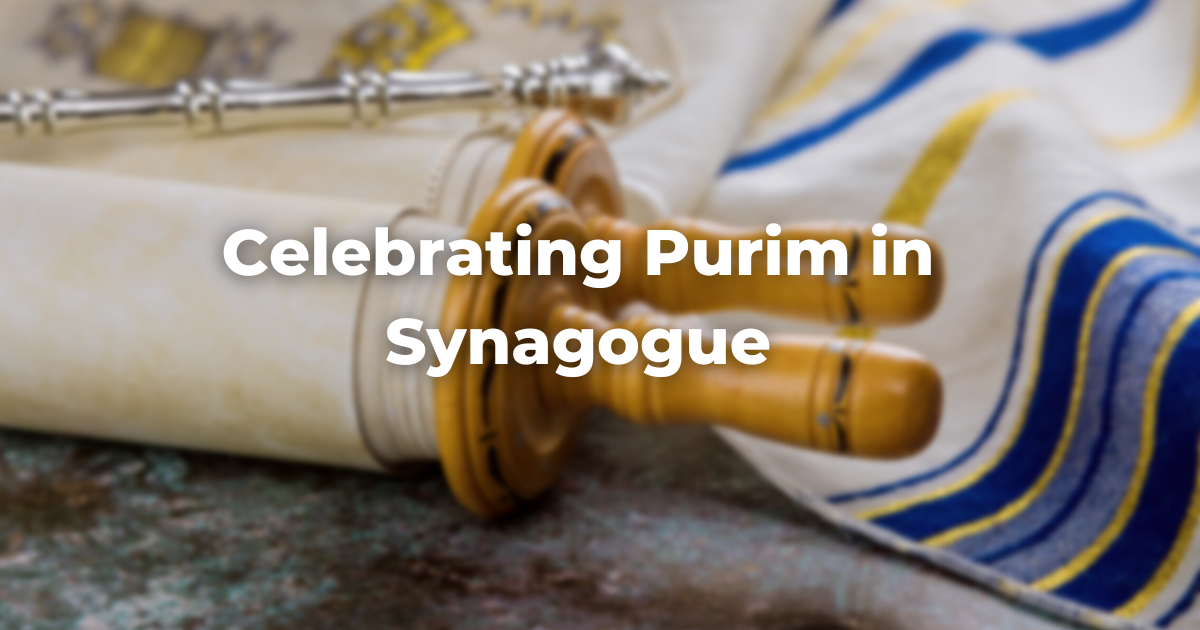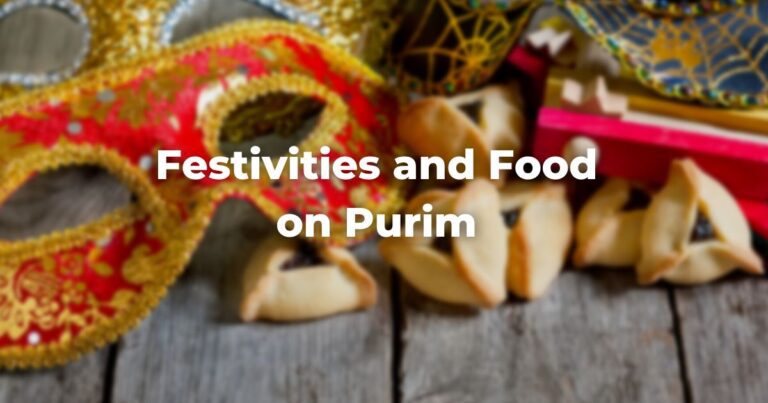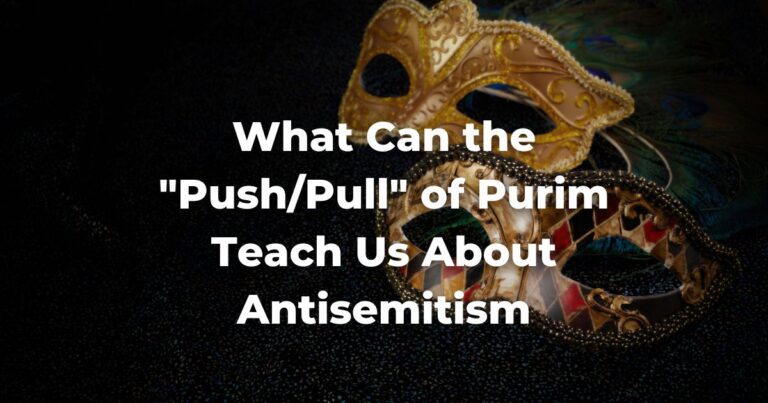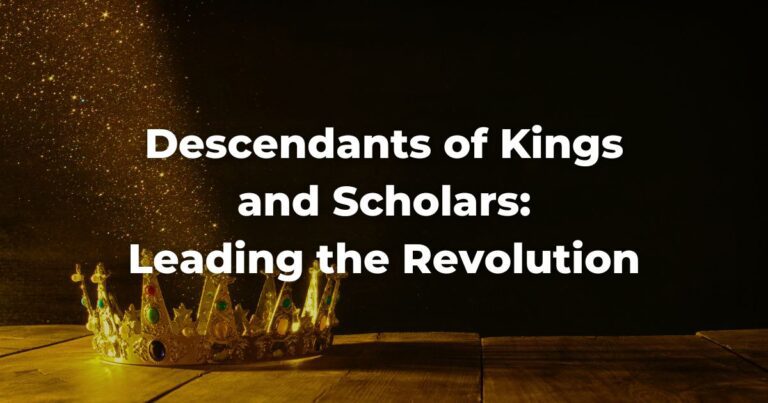Purim in Synagogue
Purim itself begins with the recitation of the regular Evening Service. As on Hanukkah, (also spelled Chanukah) a version of the Al Ha-nissim prayer is added in the penultimate blessing of the Amidah and in the Grace after Meals.
The morning TorahRefers to the first five books of the Hebrew Bible, the Tanakh, also called the Five Books of Moses, Pentateuch or the Hebrew equivalent, Humash. This is also called the Written Torah. The term may also refer to teachings that expound on Jewish tradition. Read more reading (Exodus 17:8–16, divided into three aliyot) describes the attack of Amalek.
Tradition dictates that Purim be observed on the fourteenth day of Adar.
However, in any city that was surrounded by walls in the days of Joshua, the festival is observed a day later on the fifteenth of Adar (Esther 9:17–18, as interpreted in M M’gillah 1:1).
Outside of Israel there are no cities with Jewish communities that meet this requirement.
But Jerusalem, even today, is deemed to be in that category and therefore Purim is observed there on the fifteenth of Adar, called Shushan Purim.
Reading the Megillah
Some other cities are of ambiguous status, and thus many communities in Lod, Tiberias, and Safed read the megillah on both the fourteenth and the fifteenth.
While the calendar is arranged so that Purim can never fall on Shabbat, it is possible for Shushan Purim to fall on Shabbat—which creates a three-day commemoration, Friday being Purim, and Shabbat being Shushan Purim with respect to some prayers but not with respect to the reading of the megillah, which is deferred to Sunday.
The Absence of Hallel
Surprisingly, Hallel is not recited on Purim.
The TalmudReferring to one of two collections, the Jerusalem and Babylonian Talmuds, edited in the 6th century, that contains hundreds of years of commentary, discussion, and exploration of the ideas in the Mishnah. One could describe it as Mishnah + Gemara = Talmud Read more (at BT Megillah 14a) suggests that the salvation that came to the Jews on Purim is of a more limited nature than the salvation of Passover, where the Jews were not only saved from imminent destruction but also delivered out of Egypt and out of the hands of Pharaoh.
Such is also the case on Ḥanukkah: the Jews were not only saved from imminent destruction but also delivered from the tyranny of Antiochus.
In the Purim story, on the other hand, while the Jews were delivered from imminent danger, they were specifically not delivered from Ahasuerus’s dominion, nor were they freed from any future threats he might yet have posed to their well-being.
As a result, Hallel is not recited.
It is also worth noting Maimonides’ opinion, codified in the Mishneh Torah, that there actually is an obligation to recite Hallel on Purim (presumably because the Jewish people of Persia were indeed saved from destruction), but that the reading of the megillah serves as Purim’s version of Hallel (Mishneh Torah, Hilchot Megillah vChanukah 3:6).
Adapted with permission from The Observant Life.
Authors
-

-



The Observant Life: The Wisdom of Conservative Judaism for Contemporary Jews distills a century of thoughtful inquiry into the most profound of all Jewish questions: how to suffuse life with timeless values, how to remain loyal to the covenant that binds the Jewish people and the God of Israel, and how to embrace the law while retaining an abiding sense of fidelity to one’s own moral path in life. Written in a multiplicity of voices inspired by a common vision, the authors of The Observant Life explain what it means in the ultimate sense to live a Jewish life, and to live it honestly, morally, and purposefully. The work is a comprehensive guide to life in the 21st Century. Chapters on Jewish rituals including prayer, holiday, life cycle events and Jewish ethics such as citizenship, slander, taxes, wills, the courts, the work place and so much more.
View all posts





